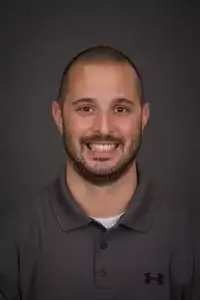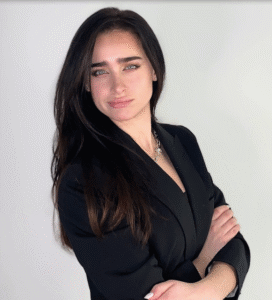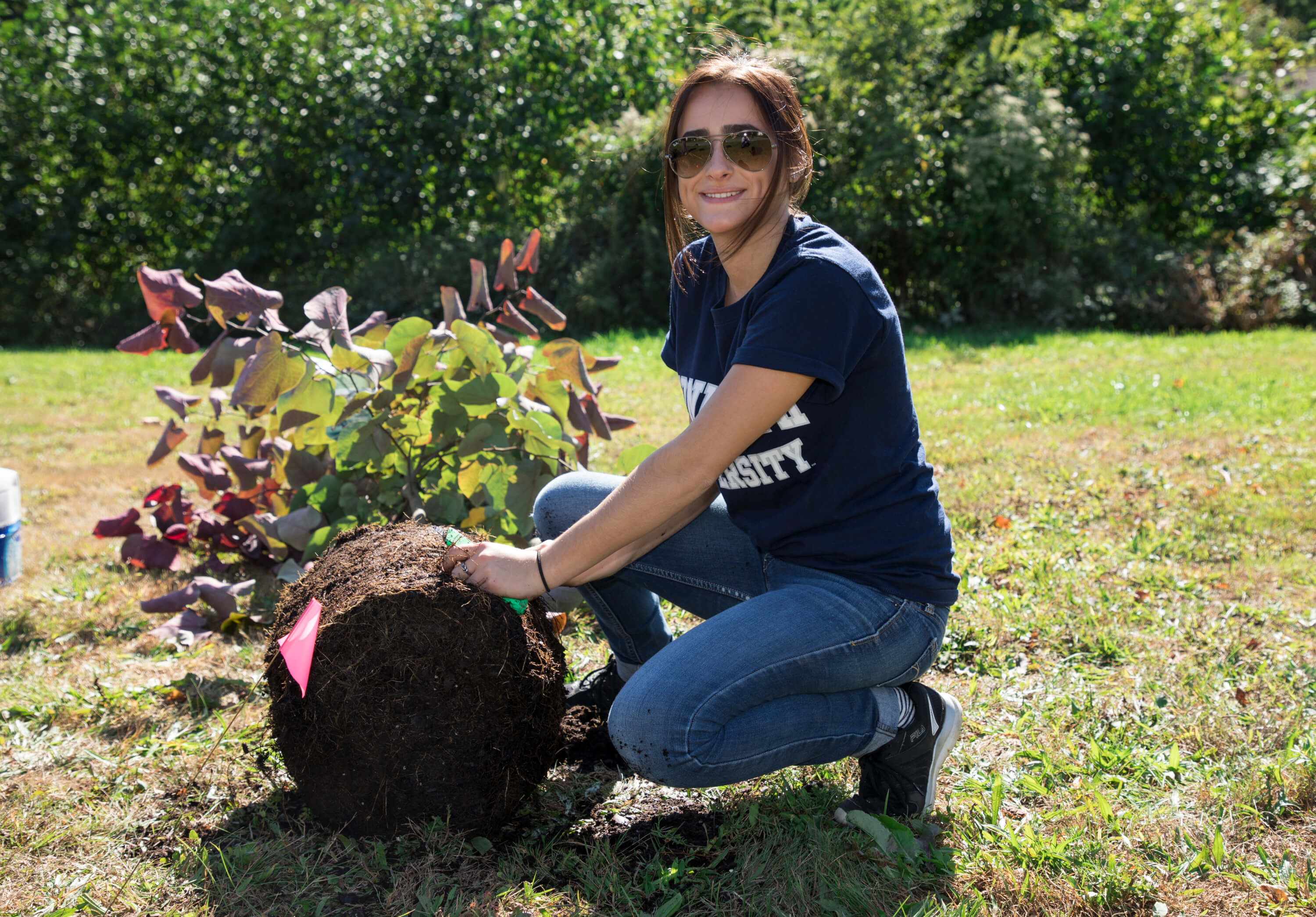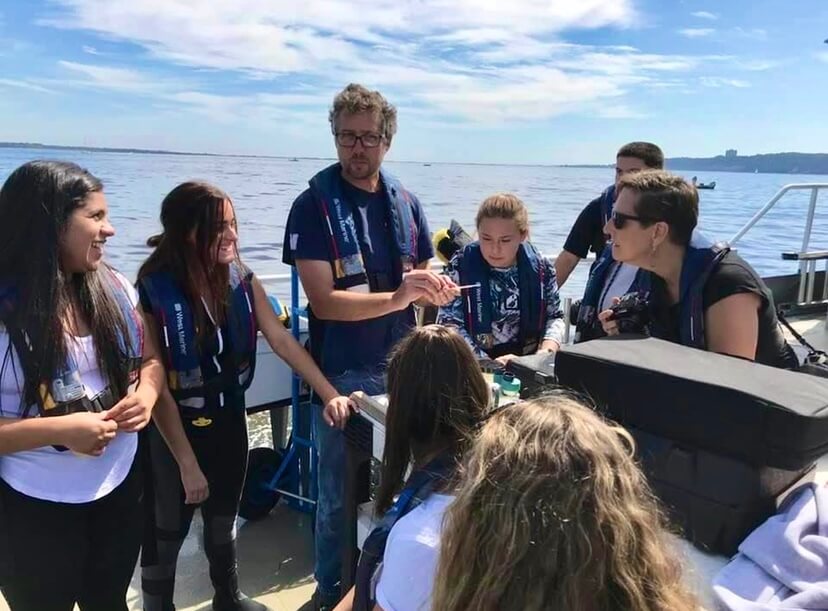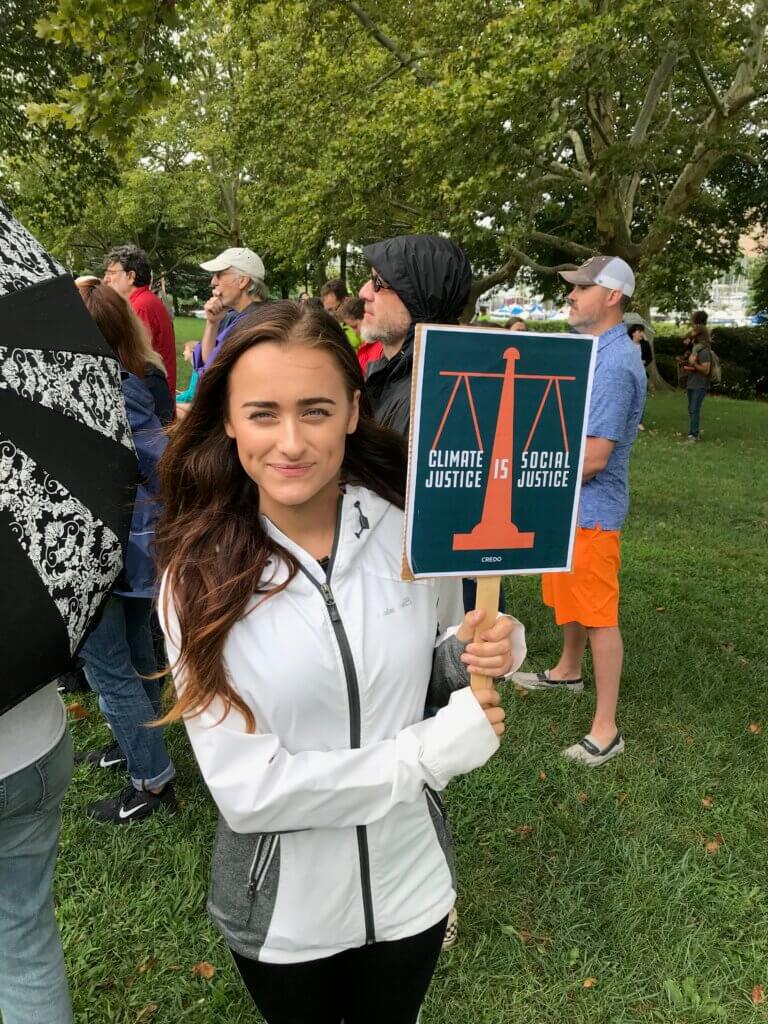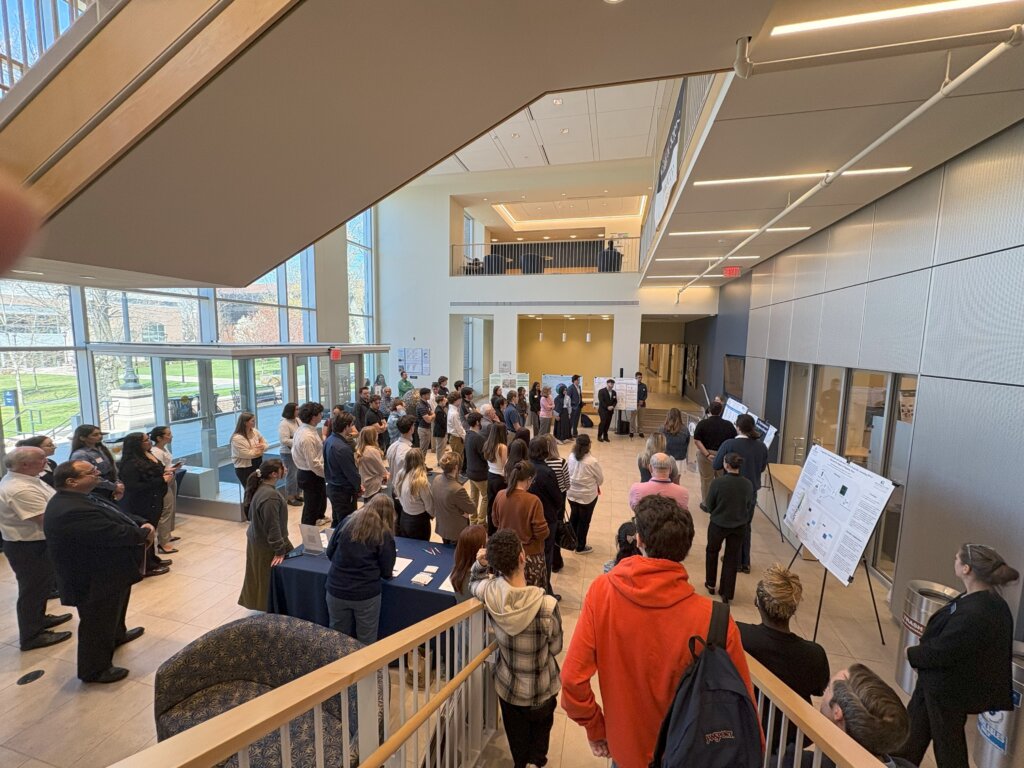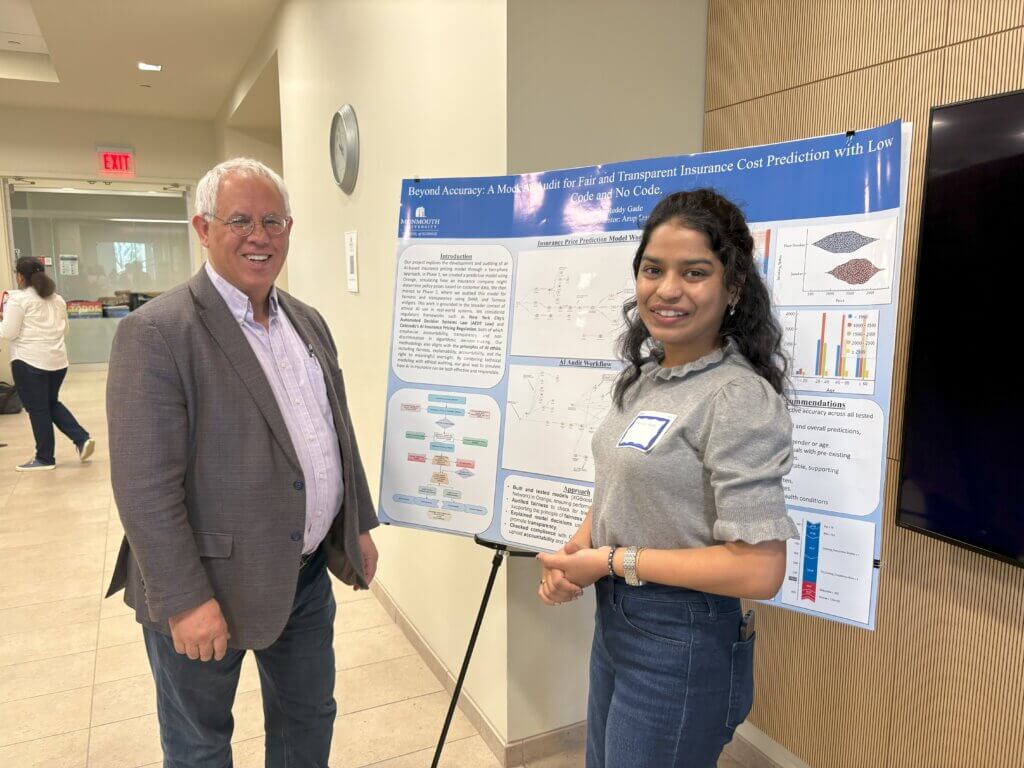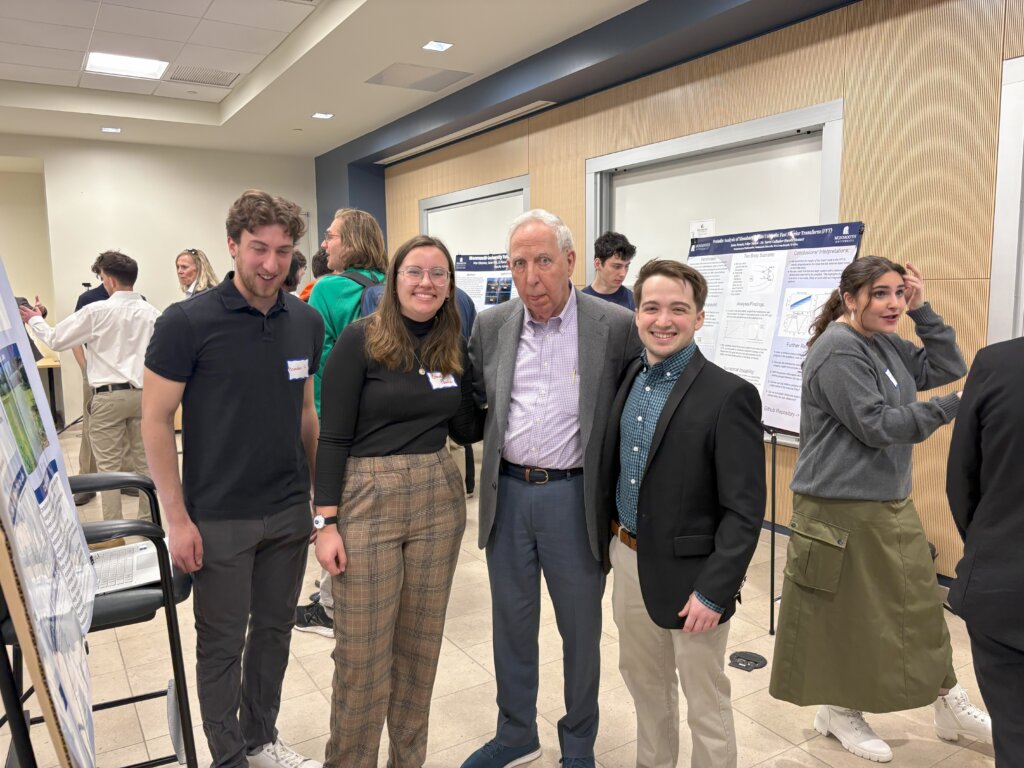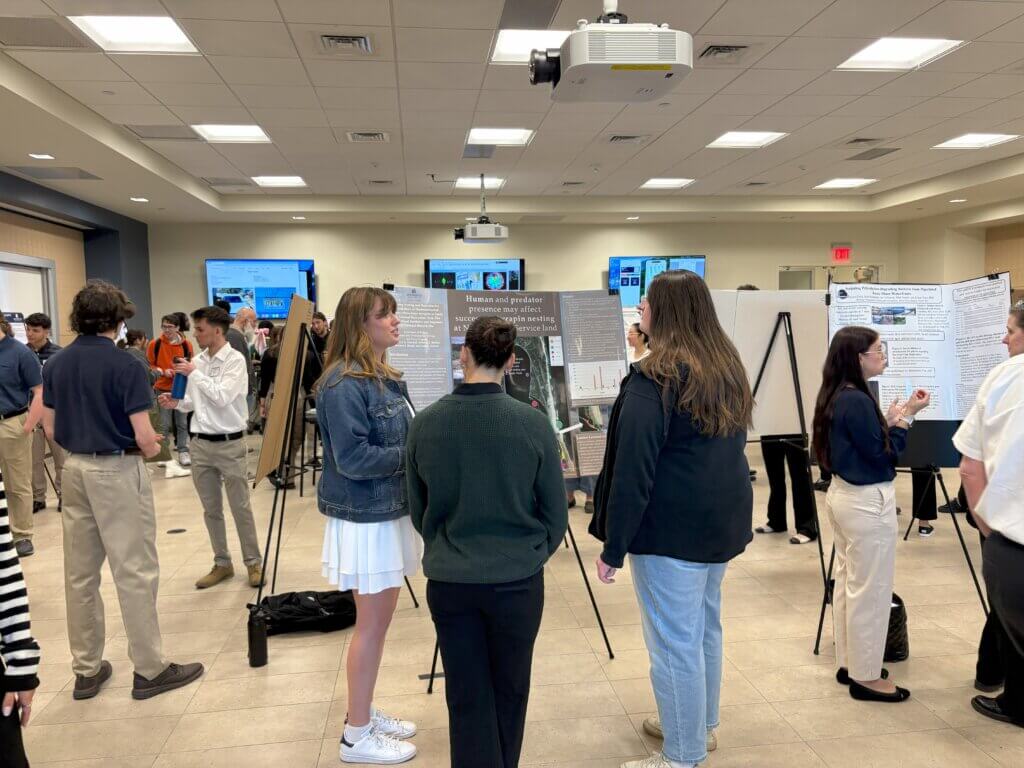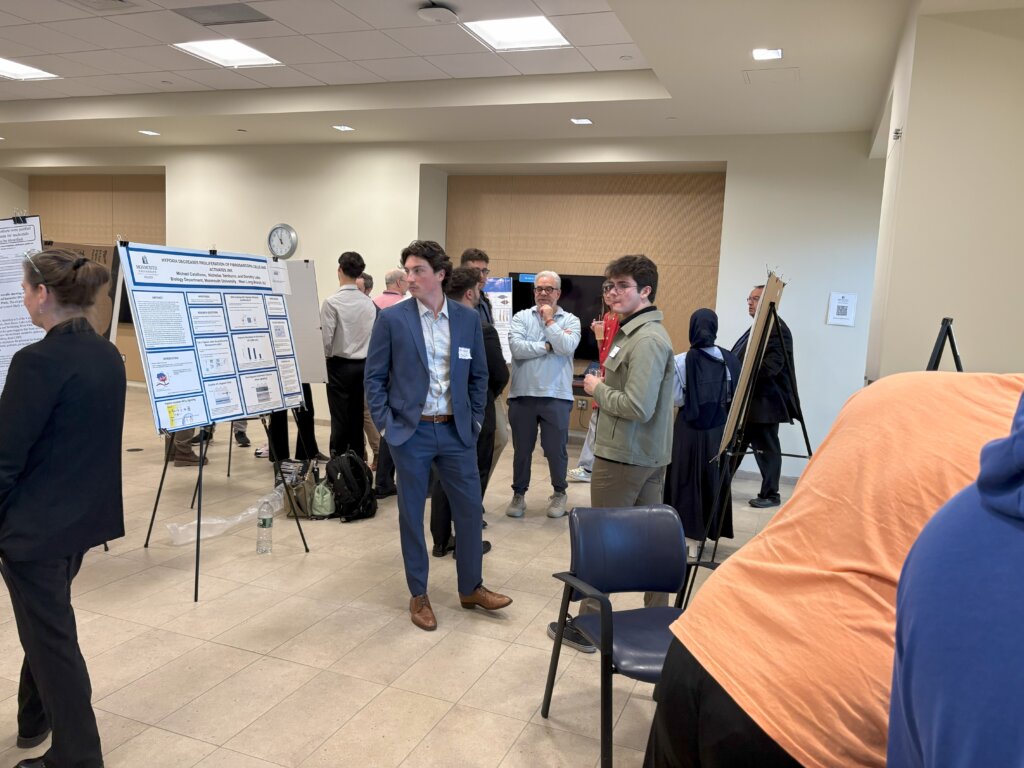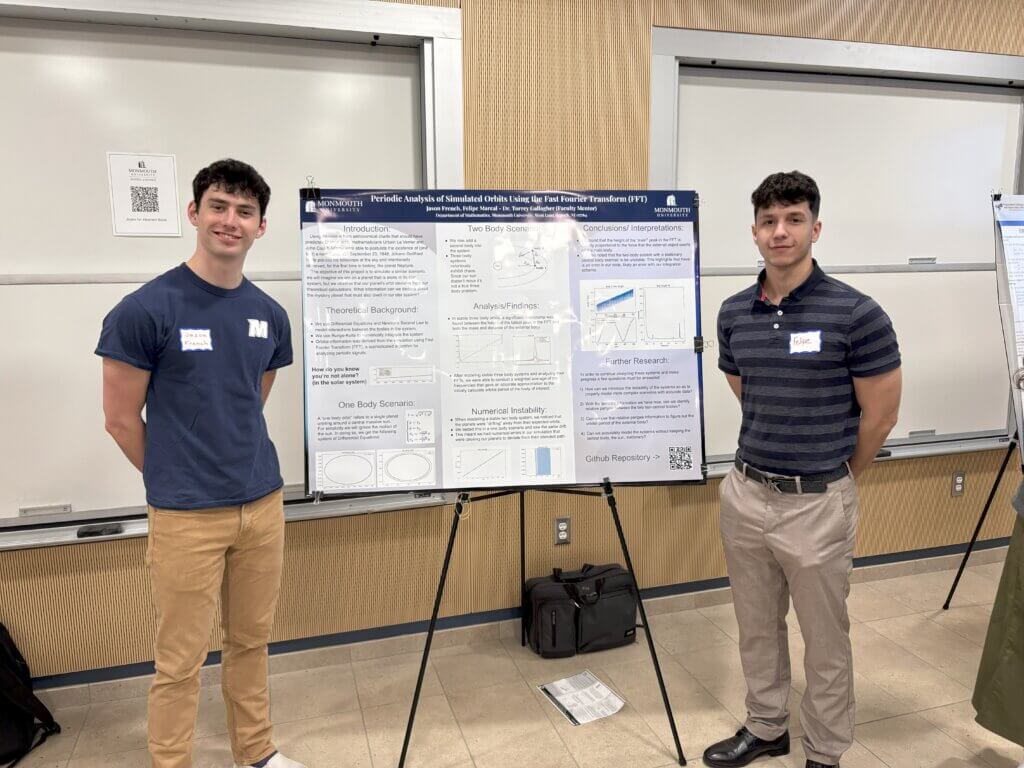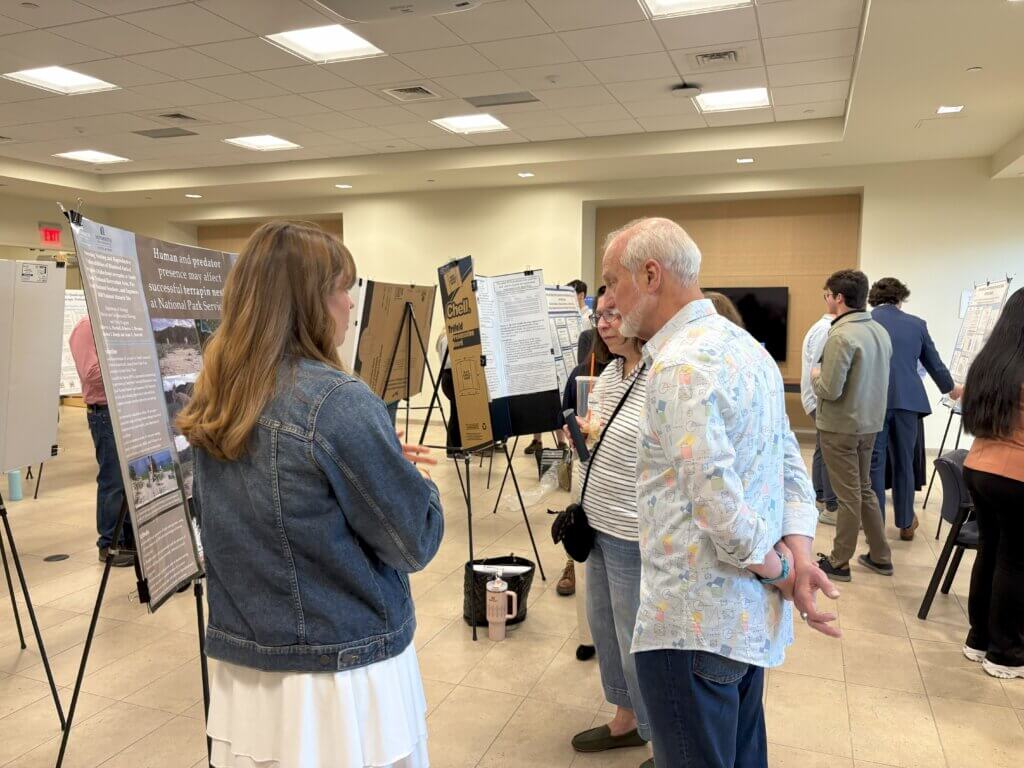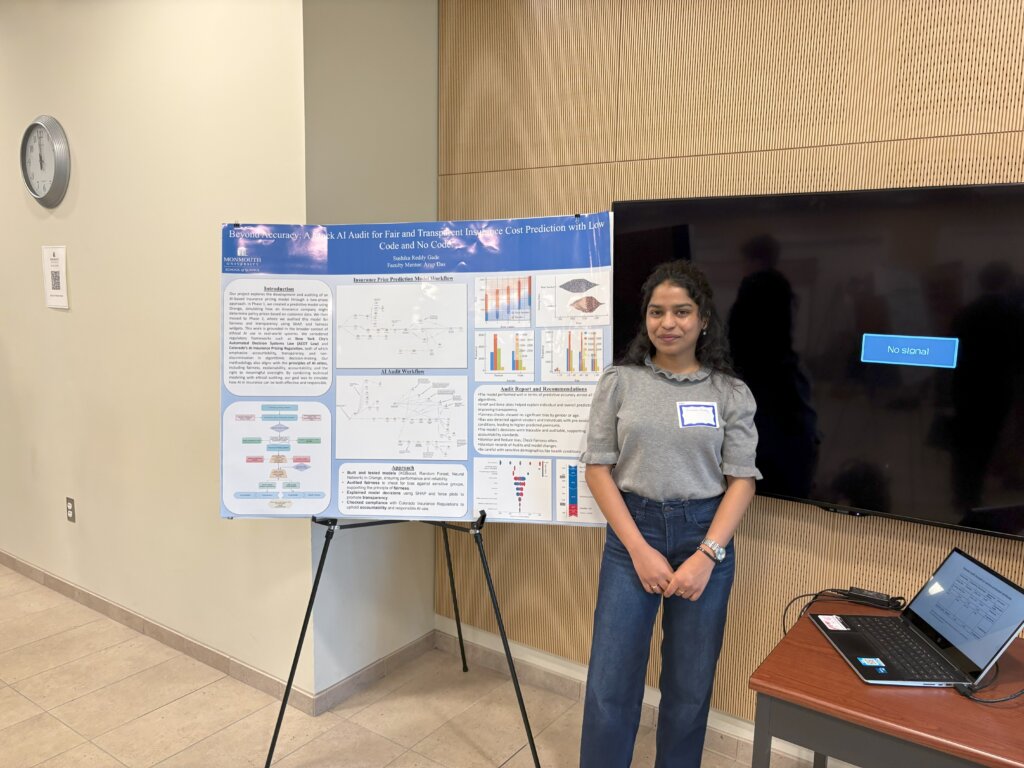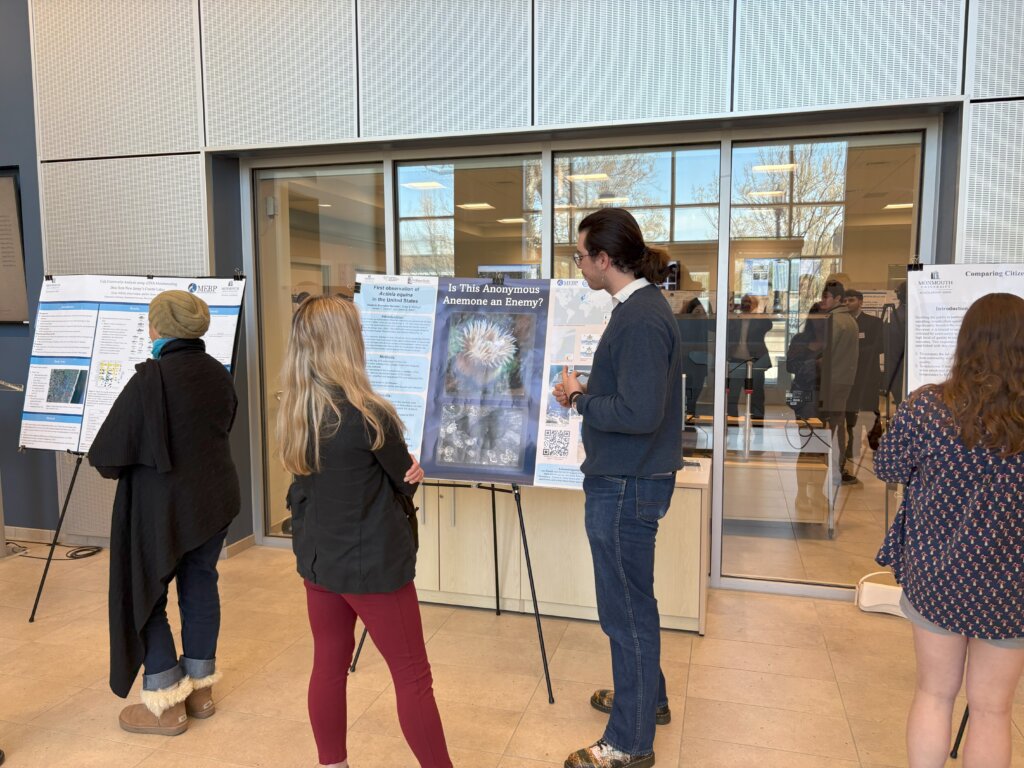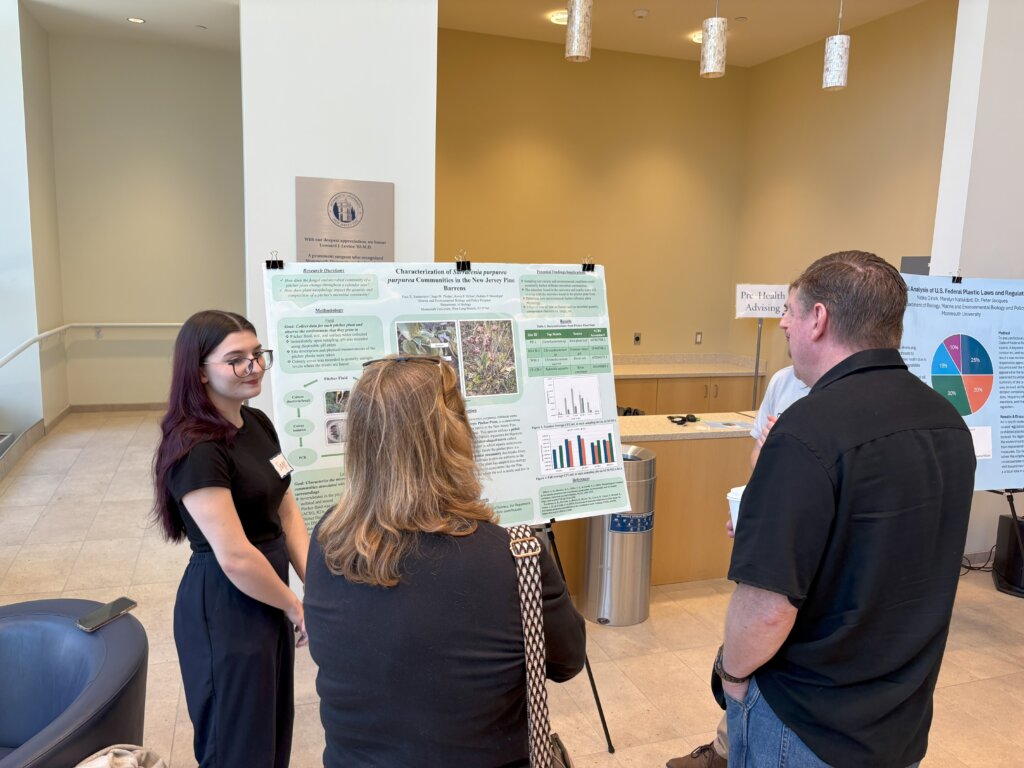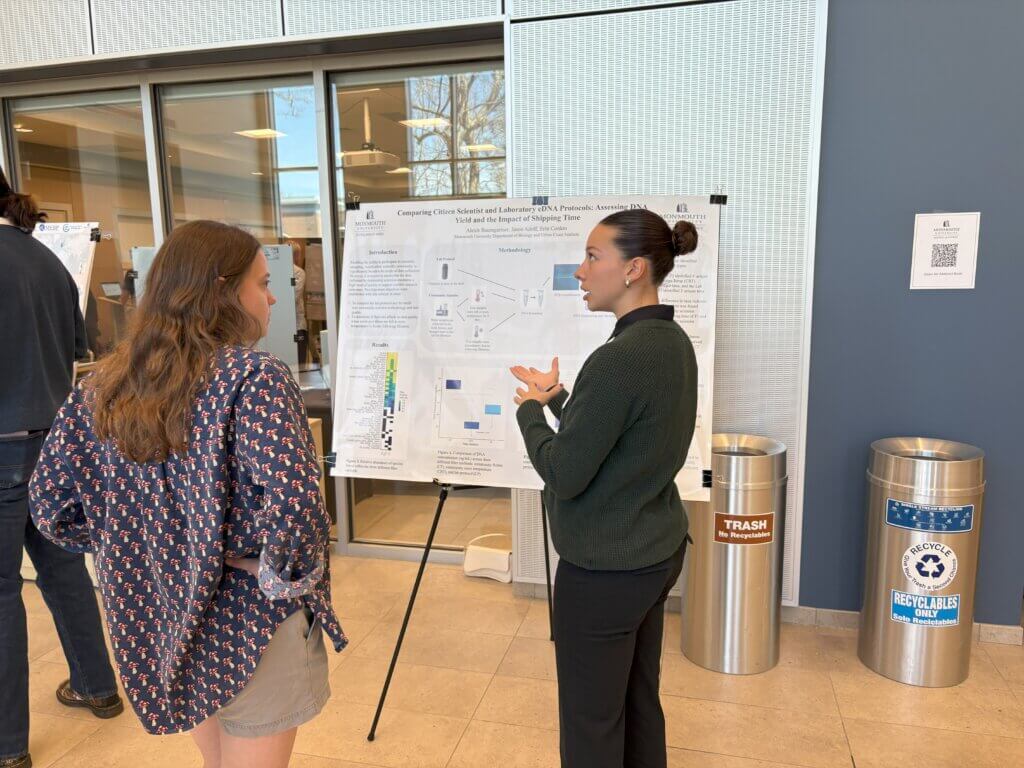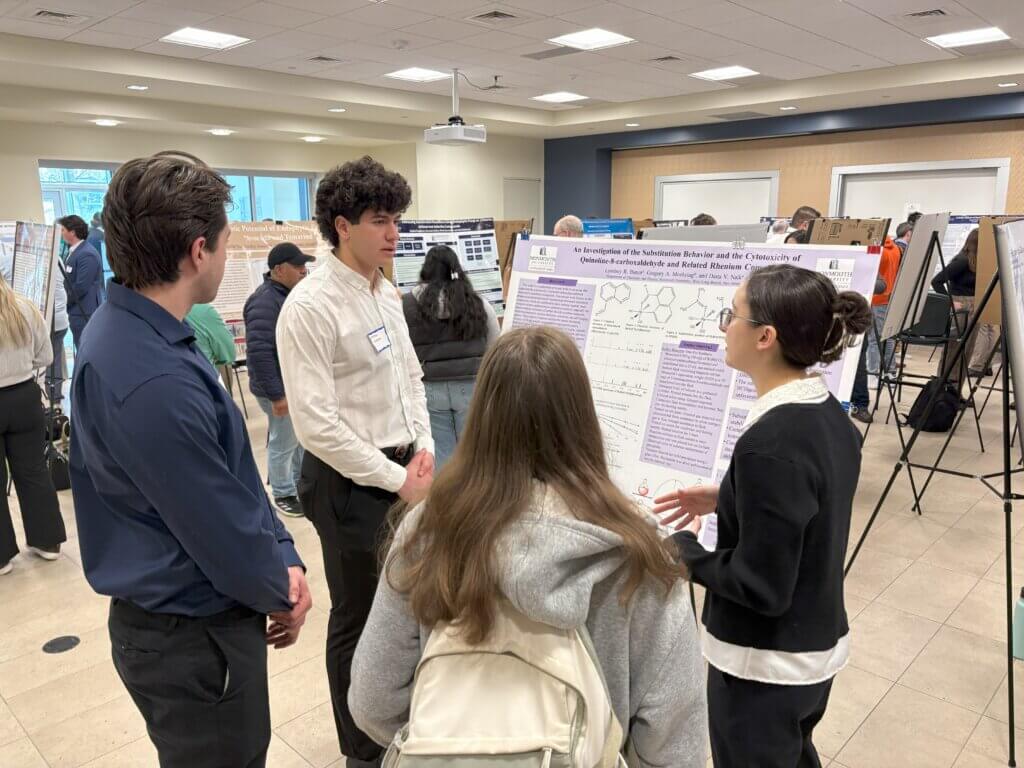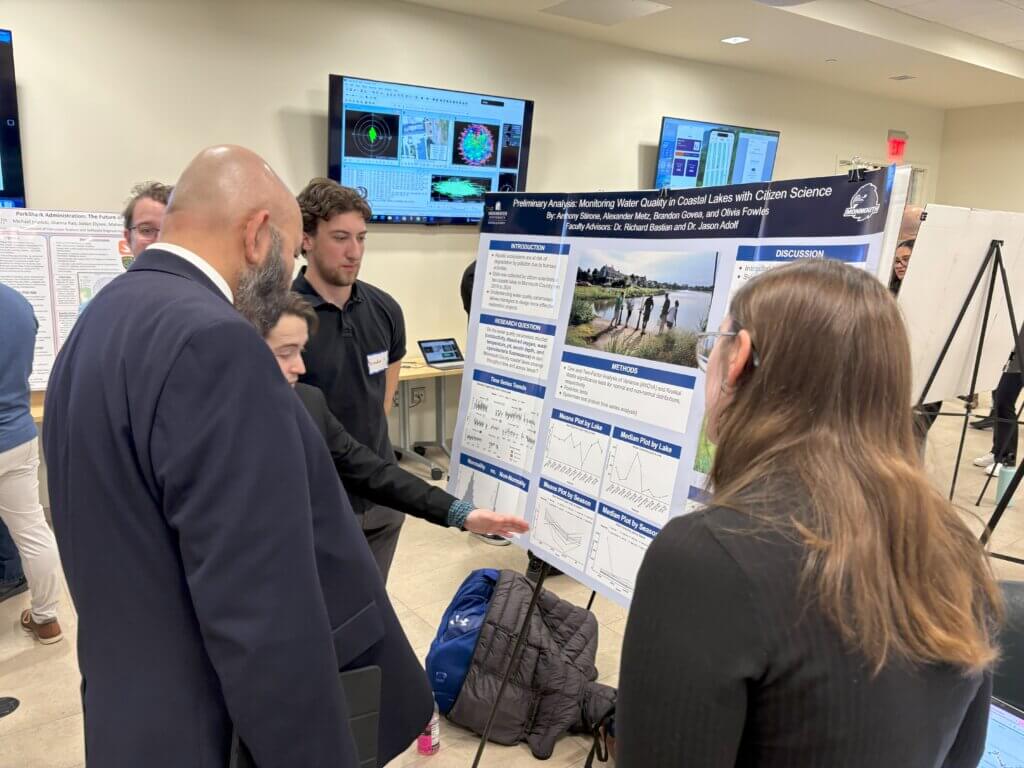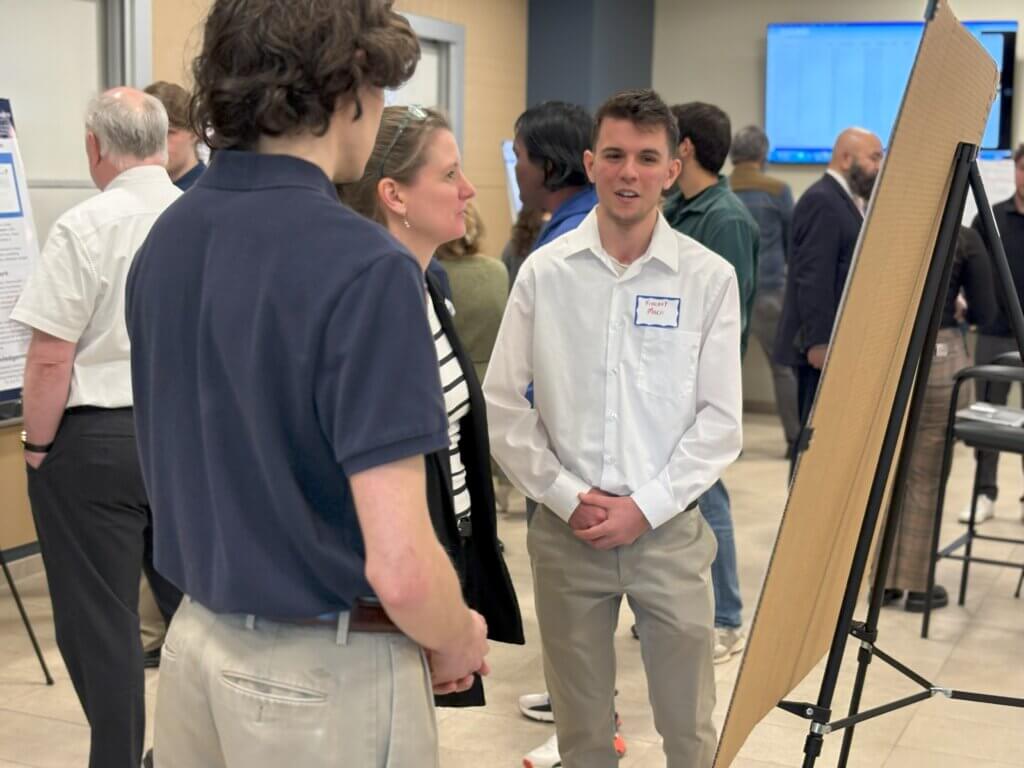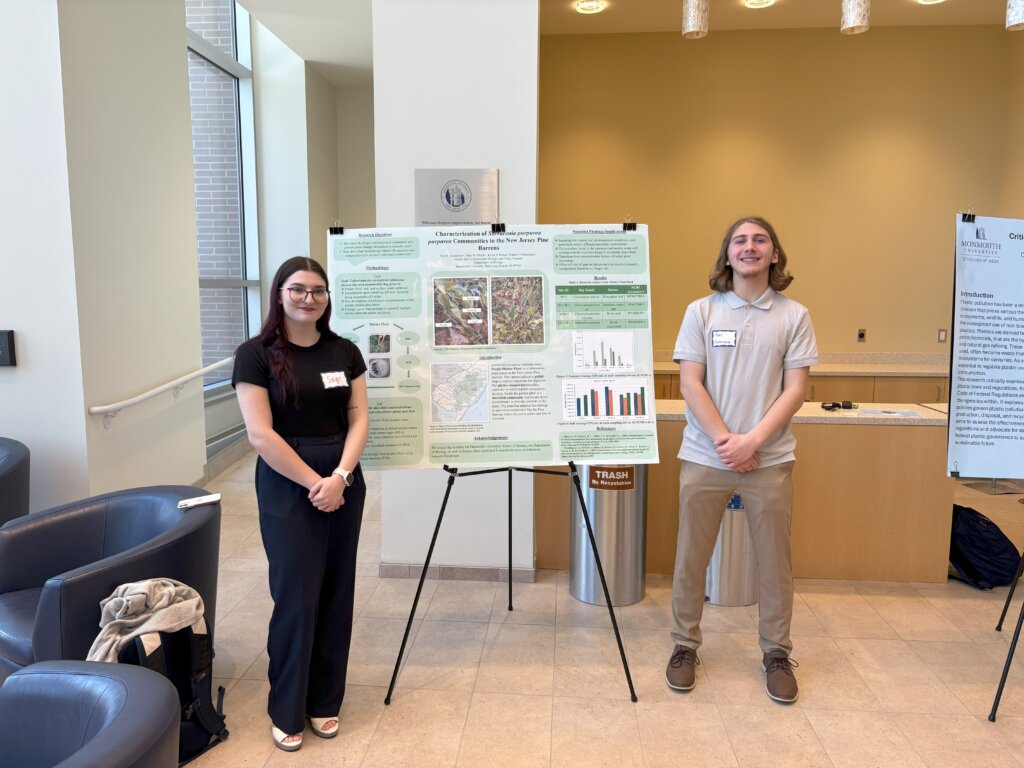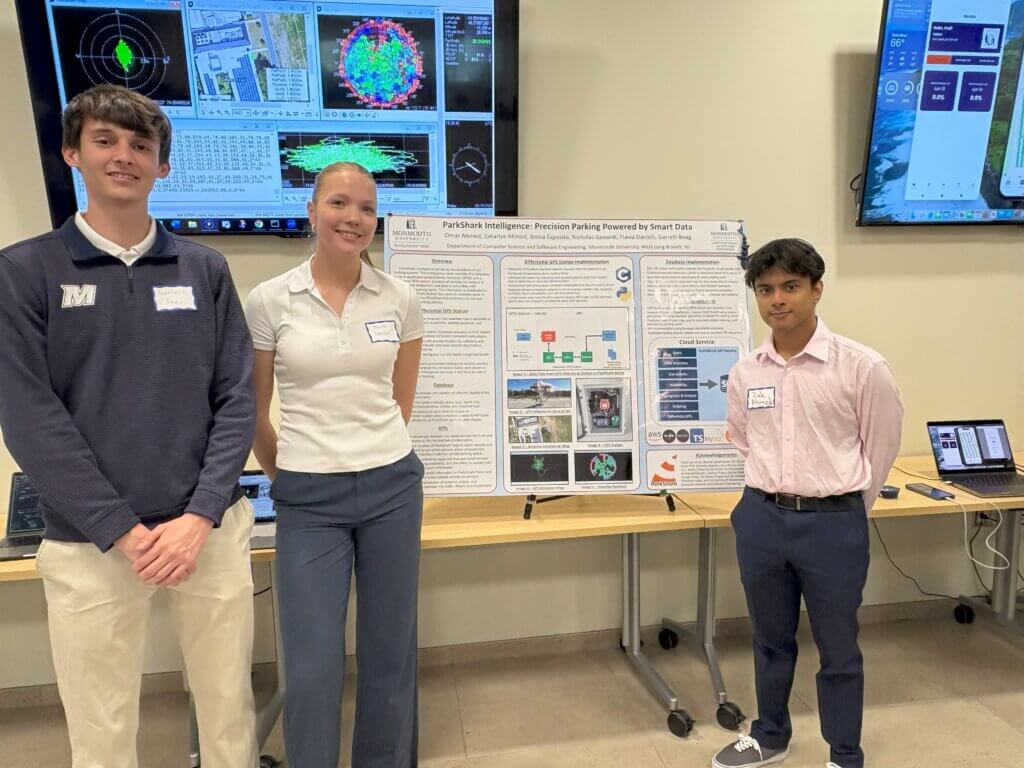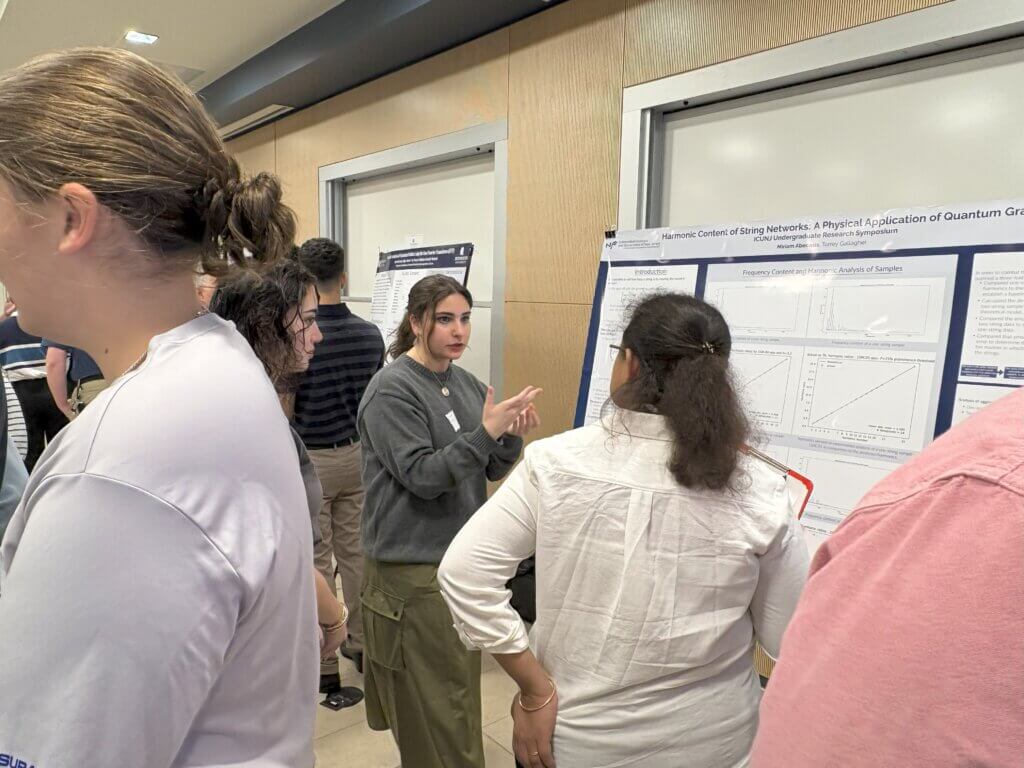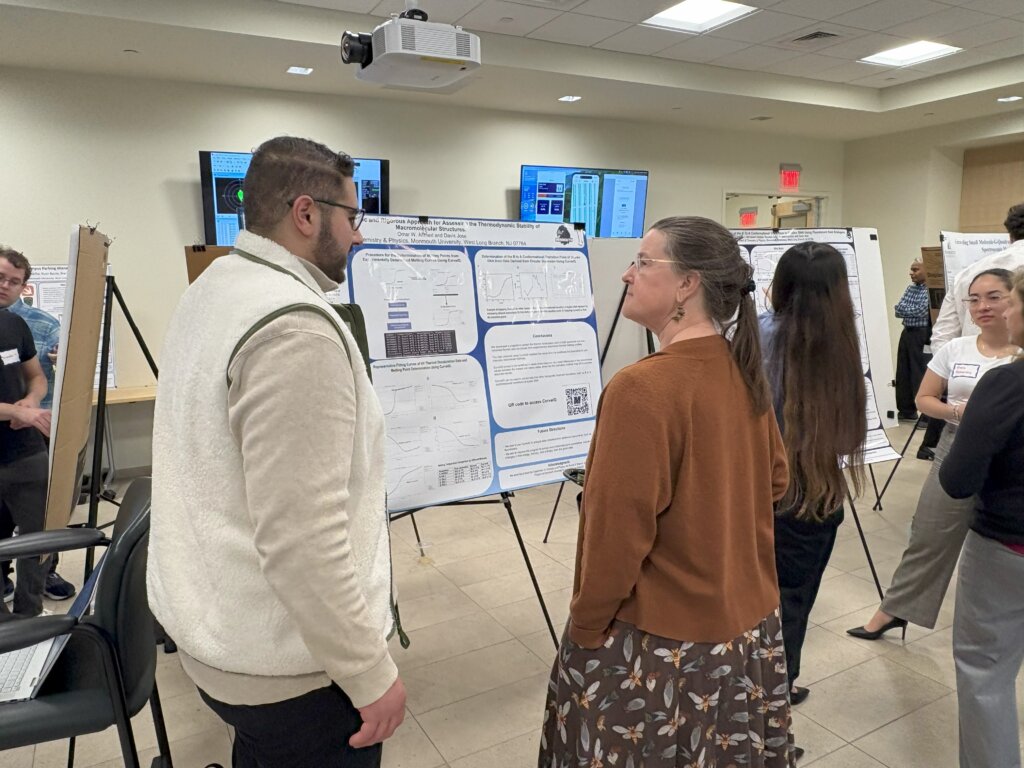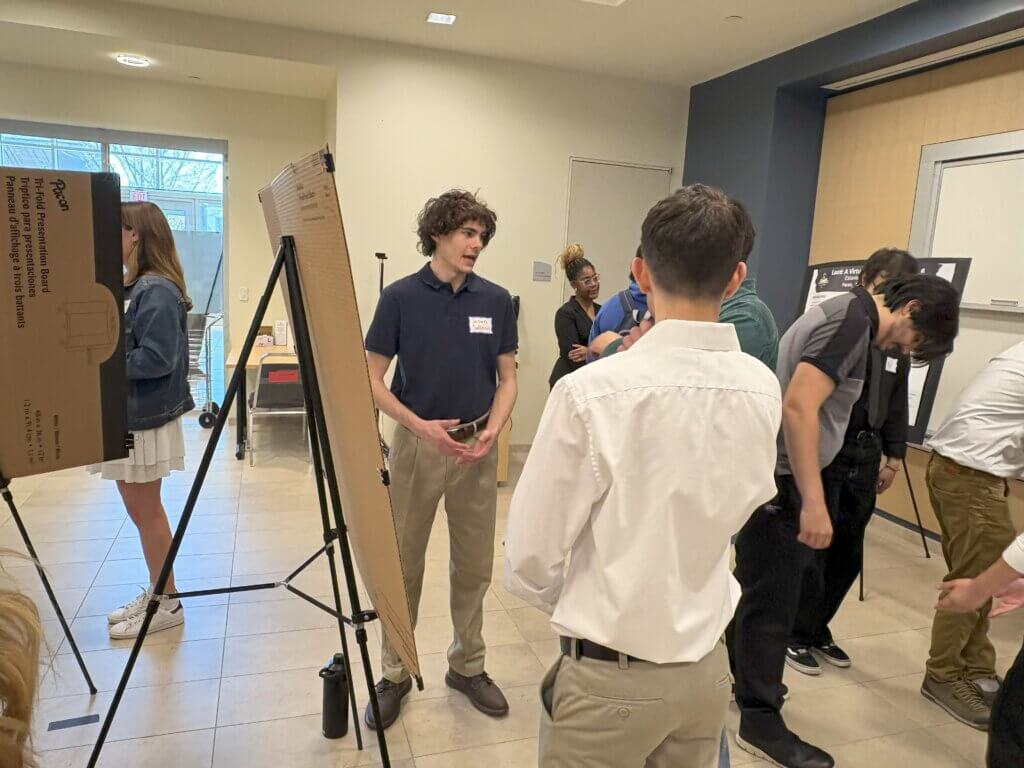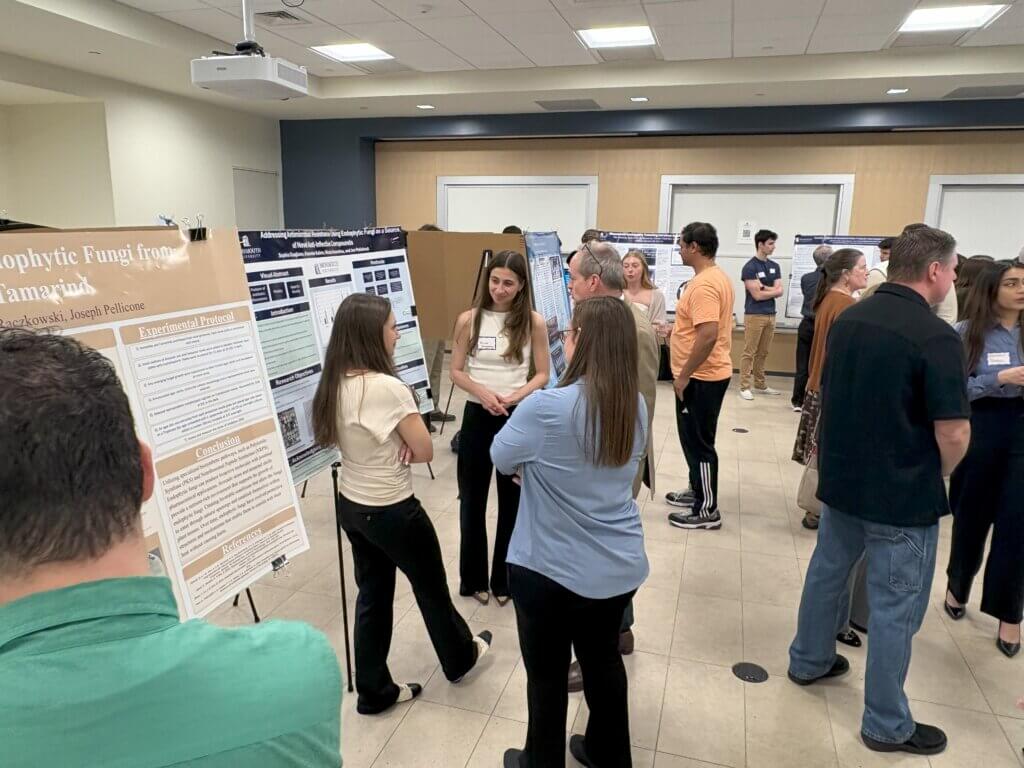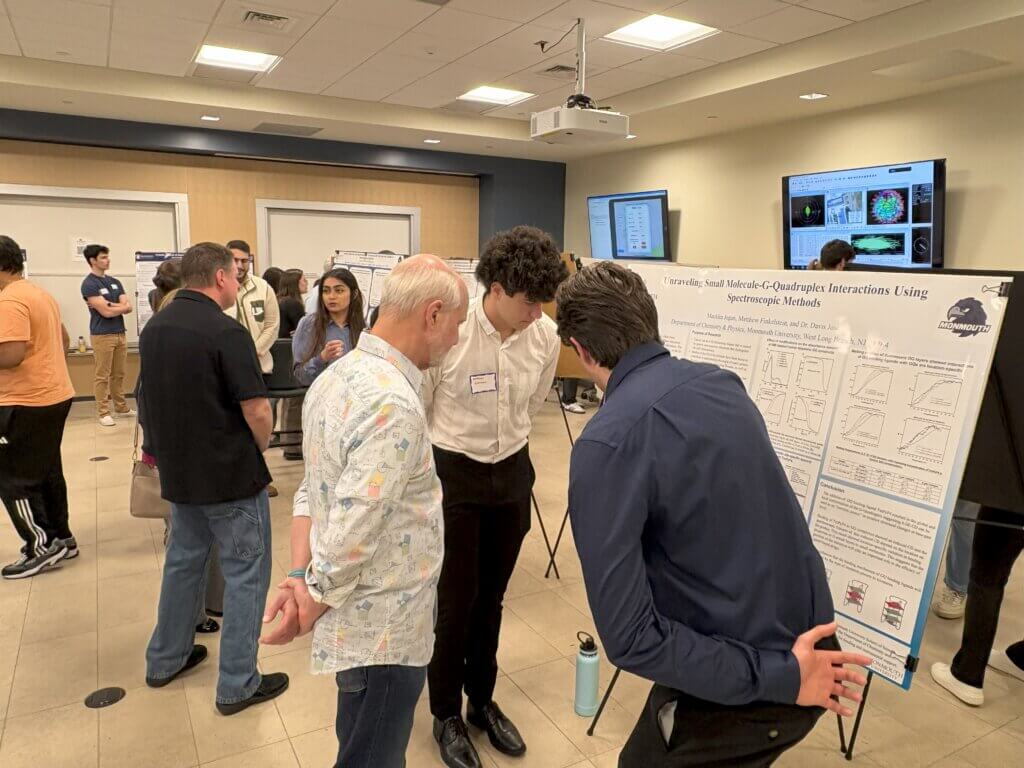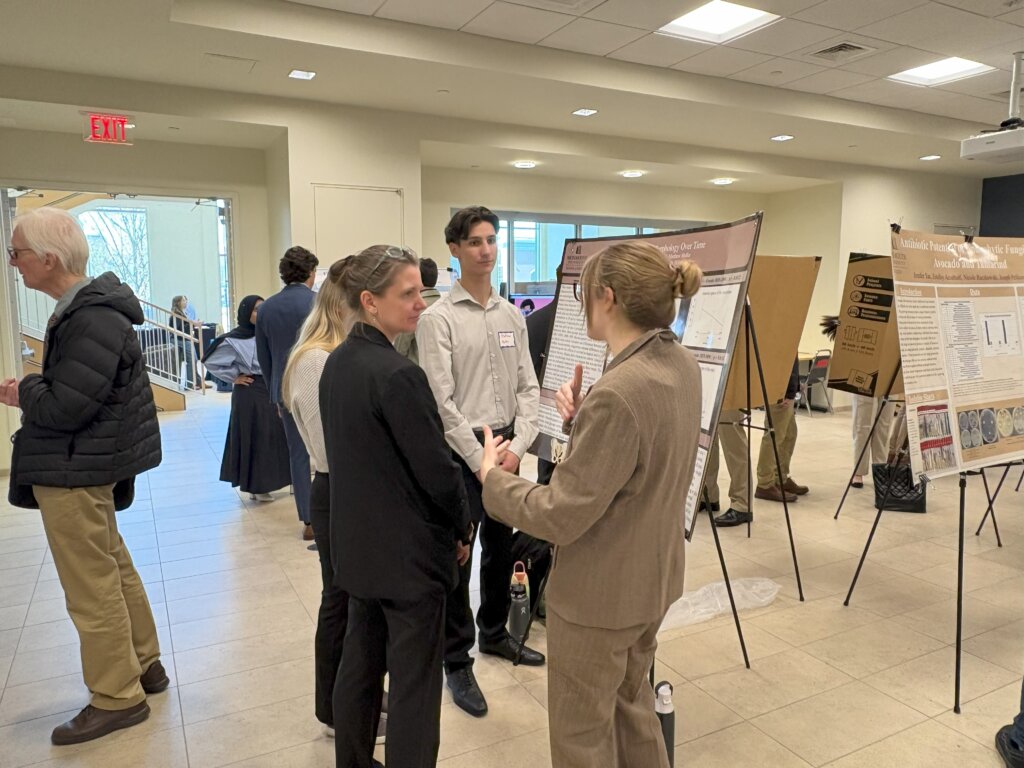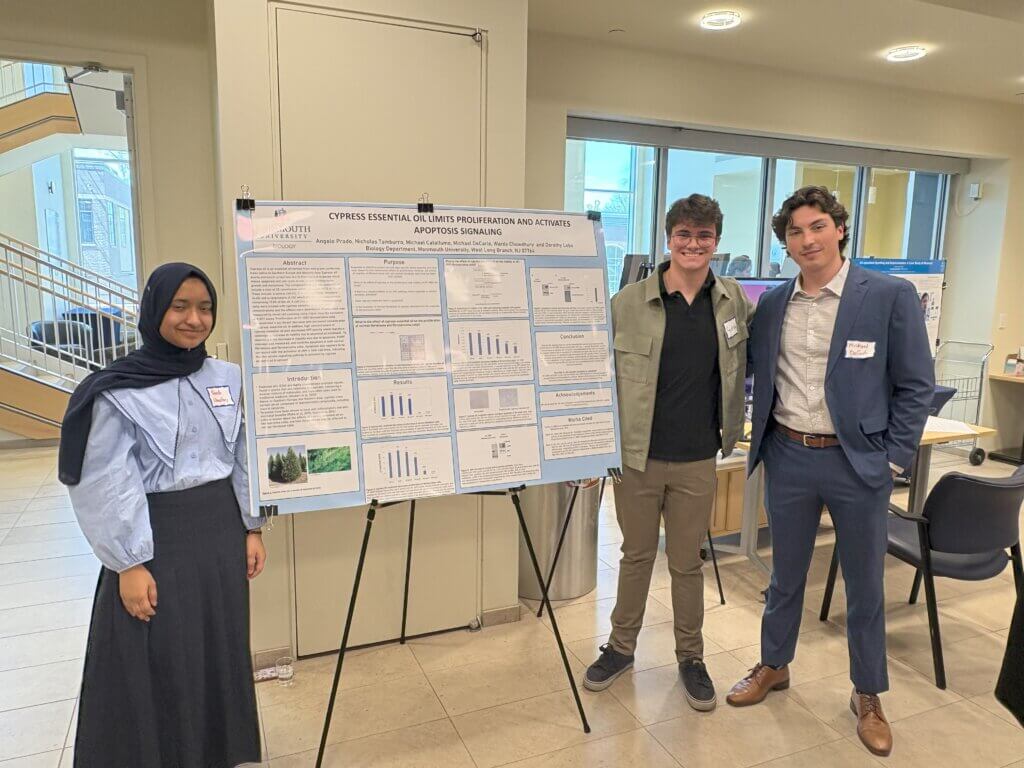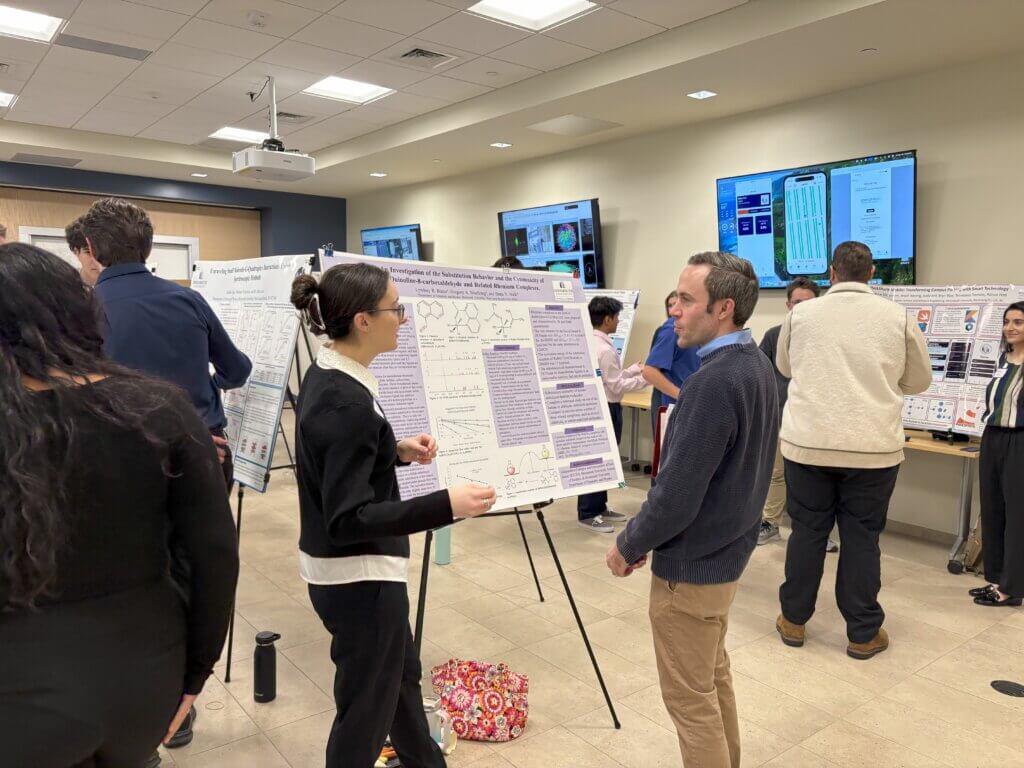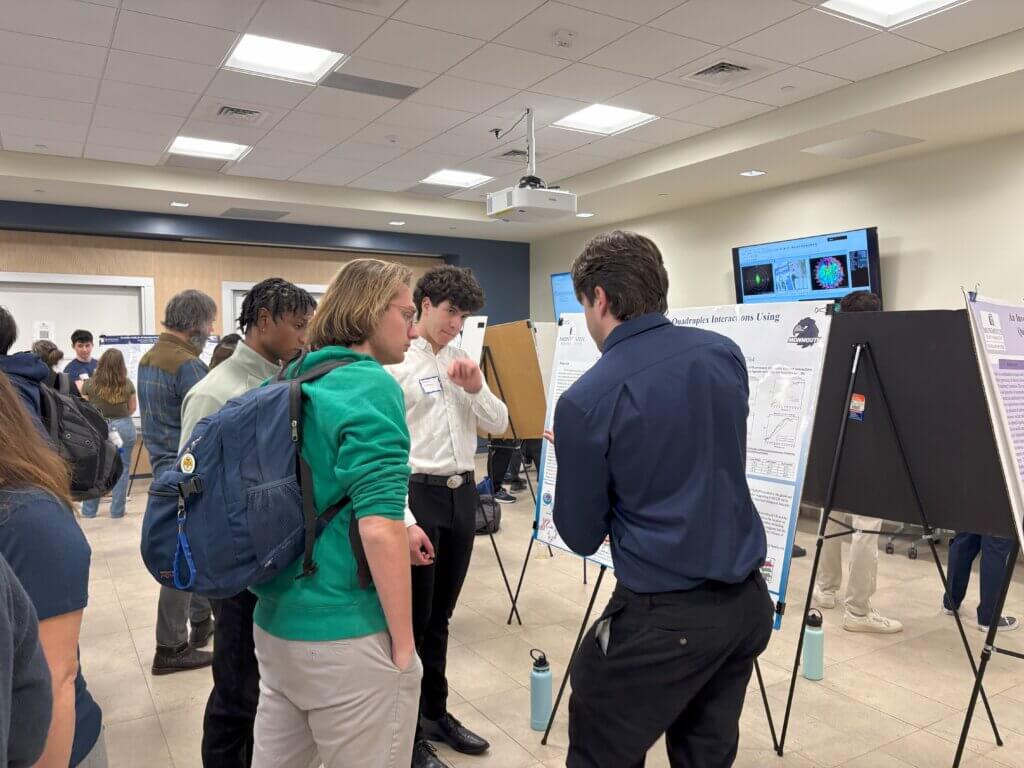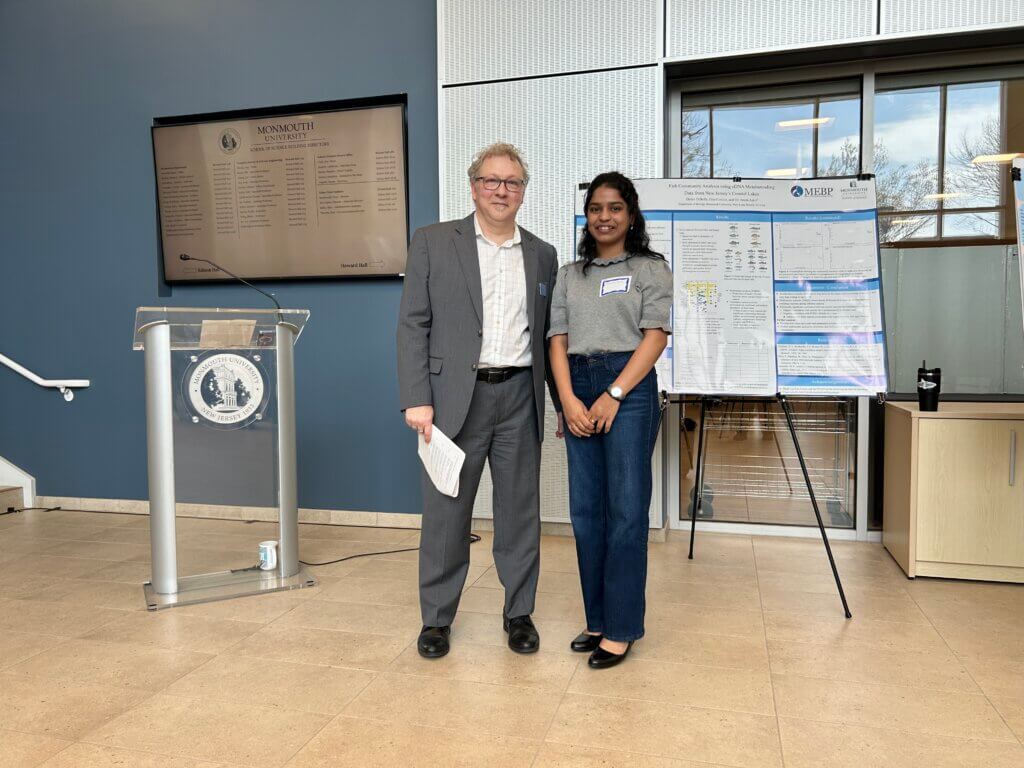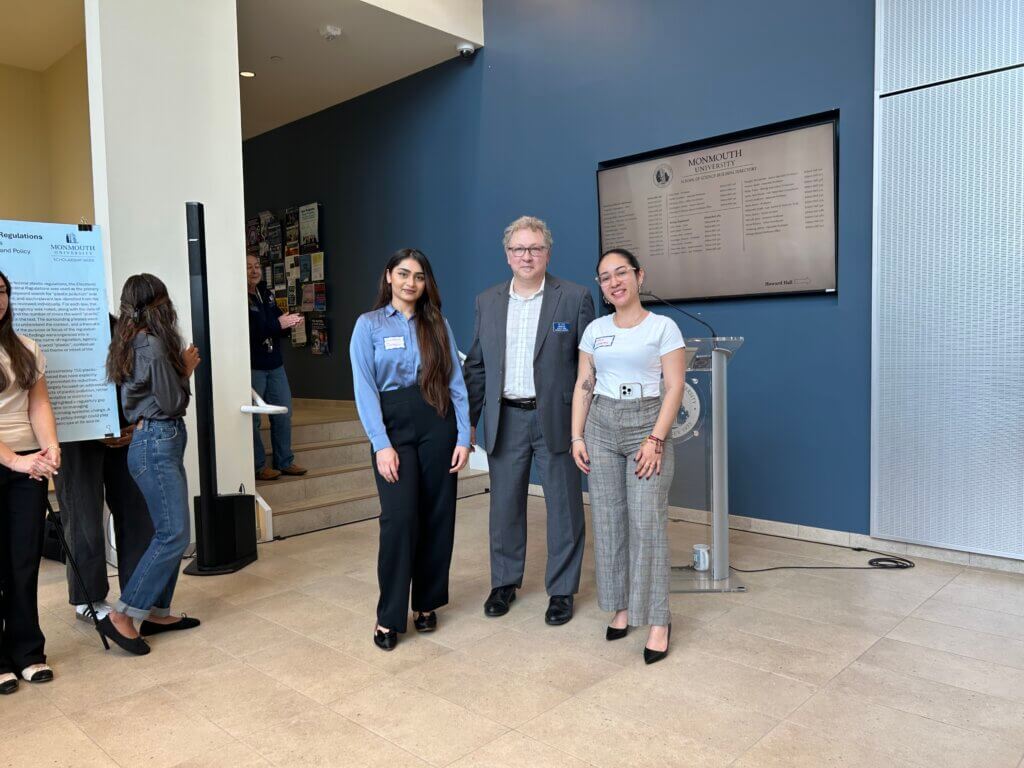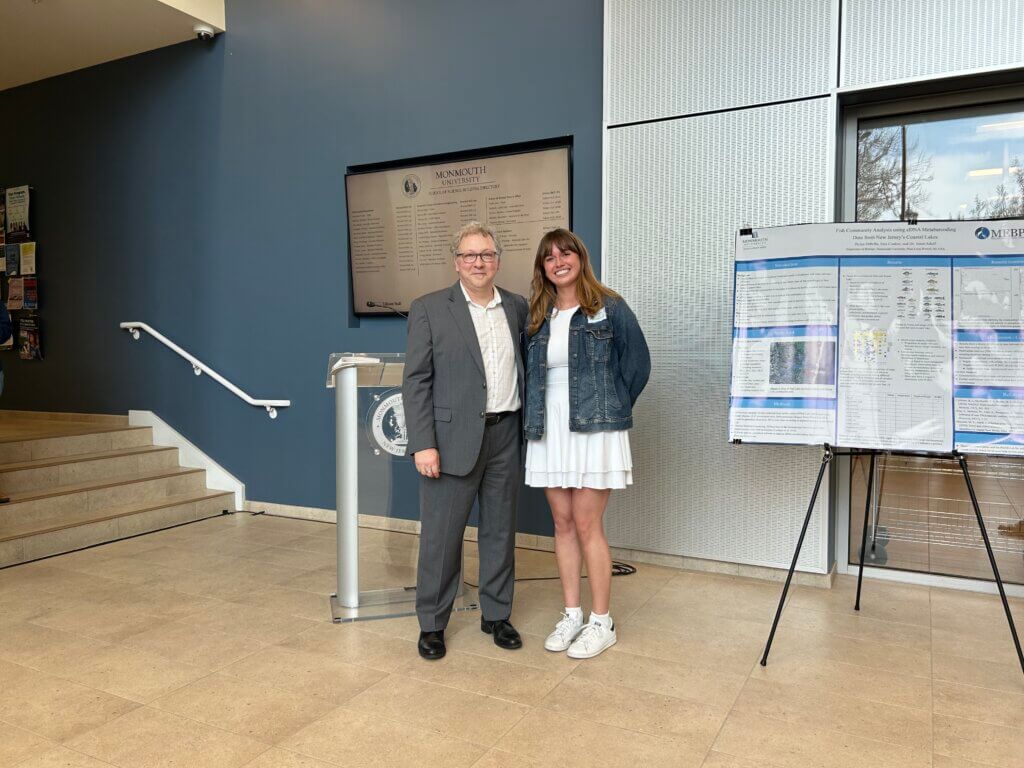Dr. Richard Bastian, Senior Lecturer in Mathematics and Dr. Catherine Duckett, Associate Dean of the School of Science were recognized at the Awards and Recognition Luncheon on the occasion of their retirements from Monmouth University. The following statements were read at the event. Together they have thirty-four years of full time service to the University.
Dr. Richard Bastian, Senior Lecturer, Mathematics
Dr. Richard Bastian holds a PhD from Johns Hopkins University. He first joined Monmouth University as an Adjunct Professor of Mathematics in 2004, after a career as an Electrical Engineer at Bell Labs and a second career as a Consultant in Strategy Practice for High-Tech Fortune 500 Companies.
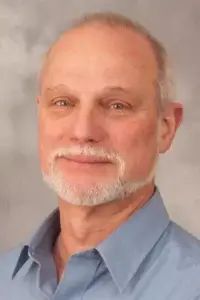
He then joined the full-time faculty of Monmouth University as a Lecturer in 2006, and was later promoted to Senior Lecturer in 2021.
He also created innovative, interdisciplinary, and impactful courses such as “Statistical Consulting,” “Design and Analysis of Biological Experiments” with Professor Pedram Daneshgar, “Careers in Mathematics Seminar,” and “Research in Mathematics.” He has successfully mentored students in statistical consulting projects and undergraduate research that resulted in numerous presentations as well as joint publications with 20 different Monmouth undergraduates.
Dr. Bastian was the driving force behind the creation of the B.S. in Mathematics with a Concentration in Statistics and the minor in Statistics back in 2012 and championed these programs for over a decade.
Dr. Bastian continues to support these alumni in their careers and leaves behind the legacy of an amazingly strong alumni network who continue to support each other and our current students. We wish him good health, and a long, happy, and fulfilling retirement full of travel, quality time with family, friends, and alumni, and continued joy in the classroom (on a part-time basis). We wish Rich all the best in his retirement.
Dr. Catherine Duckett, Associate Dean
Dr. Catherine Duckett has served as the Associate Dean in the School of Science for 15 years.
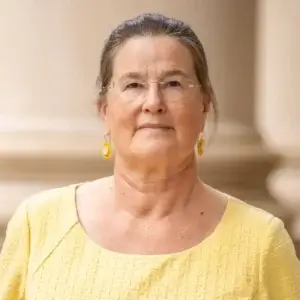
In her time as the Associate Dean, Catherine has been a voice of diversity, equity, and inclusion, helping to elevate the school’s (and University’s) functions and policies to create to be a more inviting, comfortable, and viable learning space for all.
Catherine is known for her tender devotion to even the smallest creatures among us: BUGS! She is our only resident entomologist.
Catherine has chaired the school’s DEI committee, introduced the Inclusive Teaching STEM Project to the faculty, and continues to oversee a successful and effective Peer Mentoring Program within the school.
Most notably, she is the founder and champion of the Climate Crisis Teach-In, a program that now runs throughout the academic year, raising the awareness of the impact of climate change across the school.
She is a leader on campus and in the Long Branch area, educating us all on climate change, while resisting climate doomerism through modeling citizen action at home and at the ballot box, in the garden, and in the city.
We will miss Catherine’s leadership on the ASRC, where her moral and ethical compass pointed due north all the time, assuring faculty and administrative support for some of Monmouth’s most challenged students, helping them achieve their best chance at success.
Catherine can look forward to retirement with her beloved wife Heide at their new home in Maine, where the blueberries, raspberries, and whispering pines may help convince them that it is possible to create a little bit of paradise in this fragile natural world.
We wish Catherine all the best in her retirement.


